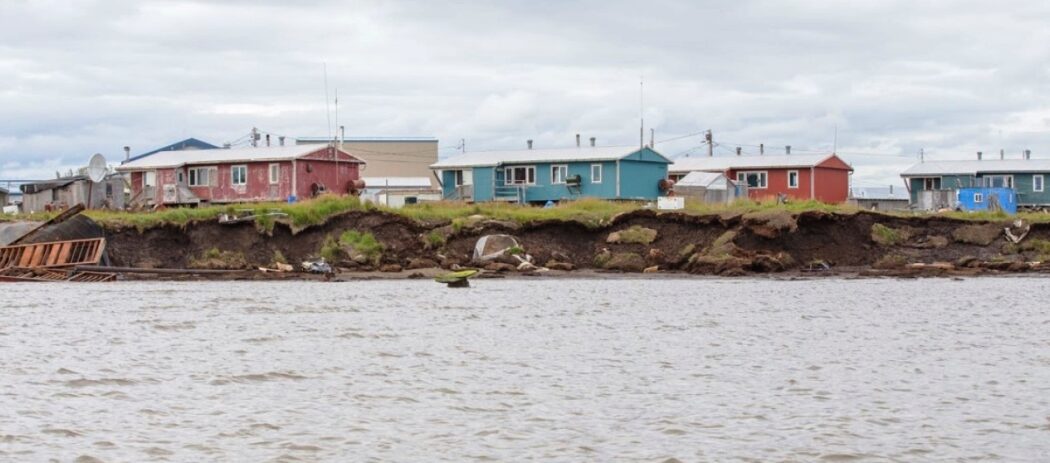On July 19, 2023, the U.S. Department of the Interior announced the availability of $120 million in funding through President Biden’s Investing in America agenda to help Tribal communities boost their climate resilience by planning for the most severe climate-related environmental threats to their homelands.
Tribal communities can use this funding to proactively plan to adapt to these threats and safely relocate critical community infrastructure. This is one of the largest amounts of annual funding made available to Tribes and Tribal organizations in the history of the Bureau of Indian Affairs’ Tribal Climate Annual Awards Program.
The Department’s Voluntary Community-Driven Relocation Program launched at the 2022 White House Tribal Nations Summit with an initial $135 million commitment to advance relocation and planning efforts for Tribal communities severely impacted by climate-related environmental threats.
This program’s name is tragically ironic, given the constant involuntary relocations forced on tribes via broken treaties during the U.S. government’s centuries of genocidal “ethnic cleansing” policies.
“Devastating storms, increased drought and rapid sea-level rise disproportionately impact Indigenous communities. Helping these communities remain on their homelands in the midst of these challenges is one of the most important climate related investments we could make in Indian Country,” said Secretary Deb Haaland, herself a Native American.
“Through President Biden’s Investing in America agenda, we are making transformational commitments to assist Tribal communities to plan for and implement climate resilience measures, upholding our trust and treaty responsibilities, and safeguarding these places for generations to come,” she added.
This funding includes $23 million from the Bipartisan Infrastructure Law, $72 million from the Inflation Reduction Act, and $25 million from fiscal year 2023 annual appropriations. With this transformational funding, Tribes and Tribal organizations will be eligible to apply for grants to help safeguard communities.
Grants will be available in planning and adaptation categories. These categories encompass a range of activities affecting every Tribe, such as climate adaptation planning, drought measures, wildland fire mitigation, community-driven relocation, managed retreat, protect-in-place efforts, and ocean and coastal management.
This historic funding also advances the Biden-Harris Administration’s Justice40 Initiative, which sets the goal that 40% of the overall benefits of certain federal investments flow to disadvantaged communities that are marginalized, underserved, and overburdened by pollution and environmental hazards.
“This investment is historic and reflects the Administration’s commitment to fulfilling the trust responsibility to protect the ability of Tribes to exist in their homelands in the face of a changing climate,” said Assistant Secretary for Indian Affairs Bryan Newland.
“This funding provides Tribes with the resources they need to develop and implement proactive strategies for their communities to become more resilient and effective at things like protecting homes and infrastructure, and if necessary, to relocate to safer ground,” he continued.
President Biden’s Investing in America agenda and “Bidenomics” strategy is deploying record investments to provide affordable high-speed internet, safer roads and bridges, modern wastewater and sanitations systems, clean drinking water, reliable and affordable electricity, and well-paid jobs in every Tribal community. This announcement is part of a nearly $440 million investment for Tribal climate resilience programs achieved through the Bipartisan Infrastructure Law, Inflation Reduction Act, and annual appropriations.
Photo (courtesy of Alaska Native Tribal Health Consortium) shows tribal community in Alaska that was forced to relocate due to increased coastal erosion of climate crisis.

